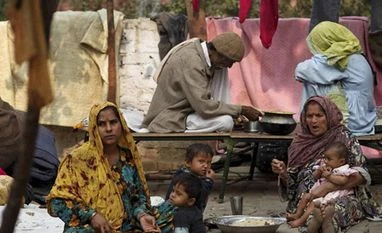Asserting that Bangladesh has done an impressive job in reducing poverty over the last decade, the World Bank, in its report released on October 3, said the country has the potential to end extreme poverty by 2030 if firm steps are taken to make growth more inclusive to benefit all.
Two new reports delving upon the neighbouring country's development and its exisiting poverty conditions - 'Bangladesh Development Update' and 'Poverty and Shared Prosperity 2016: Taking on Inequality'- were published today.
According to the the Daily Star, reports indicate that Dhaka is making sustained progress in poverty reduction and increasing opportunities within the country.
Further they state that more than 16 million people in Bangladesh were elevated from conditions of extreme poverty in a decade's time, with 28 million people, which is 18.5 percent of the total population, living in extreme poverty in 2010 after the poverty line changed to USD 1.90 based on the 2011 purchasing power.
To achieve the aim of reducing extreme poverty to less than three percent of Bangladeshis by 2030, the country will require an economic growth becoming that is more inclusive, to enable the poorest 40 percent of the society to receive greater benefits from development.
On the other hand, the reports also ranked Bangladesh the 64th poorest nation out of the 154 countries.
The development update stressed upon increasing resilience to security, financial and trade shocks apart from the weaker-than-expected global trade and growth.
The report pointed out that the country needs to maintain its economic and remittances growth, create better jobs, focus on energy and transportation infrastructure, and make progress in improving the quality of health and education so that it moves to the next level and achieves its goal of becoming a middle-income country by 2021 and overcoming extreme poverty by 2030.
As part of the global End Poverty Day campaign, World Bank president, Jim Yong Kim, is planning to visit Bangladesh later this month. His visit is intended to draw attention to Bangladesh's impressive record in reducing extreme poverty.
"I'm very much looking forward to see, first-hand, Bangladesh's progress in improving the livelihoods of tens of millions, empowering women, and enhancing the quality of education," Kim said.
He added that many developing countries in the world can learn important lessons from Bangladesh to reduce extreme poverty and to promote sustainable development.
You’ve hit your limit of {{free_limit}} free articles this month.
Subscribe now for unlimited access.
Already subscribed? Log in
Subscribe to read the full story →

Smart Quarterly
₹900
3 Months
₹300/Month
Smart Essential
₹2,700
1 Year
₹225/Month
Super Saver
₹3,900
2 Years
₹162/Month
Renews automatically, cancel anytime
Here’s what’s included in our digital subscription plans
Access to Exclusive Premium Stories Online
Over 30 behind the paywall stories daily, handpicked by our editors for subscribers


Complimentary Access to The New York Times
News, Games, Cooking, Audio, Wirecutter & The Athletic
Business Standard Epaper
Digital replica of our daily newspaper — with options to read, save, and share


Curated Newsletters
Insights on markets, finance, politics, tech, and more delivered to your inbox
Market Analysis & Investment Insights
In-depth market analysis & insights with access to The Smart Investor


Archives
Repository of articles and publications dating back to 1997
Ad-free Reading
Uninterrupted reading experience with no advertisements


Seamless Access Across All Devices
Access Business Standard across devices — mobile, tablet, or PC, via web or app



)
